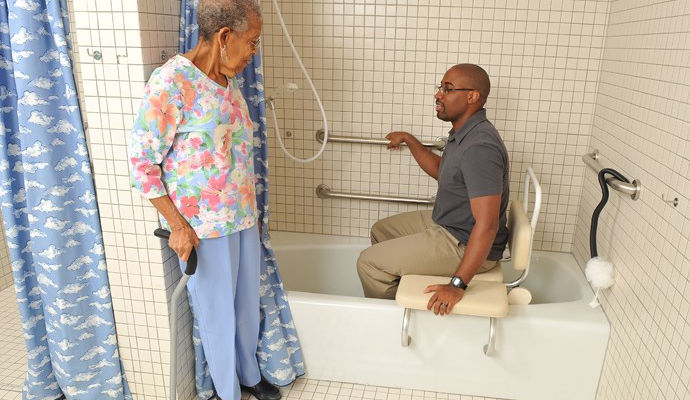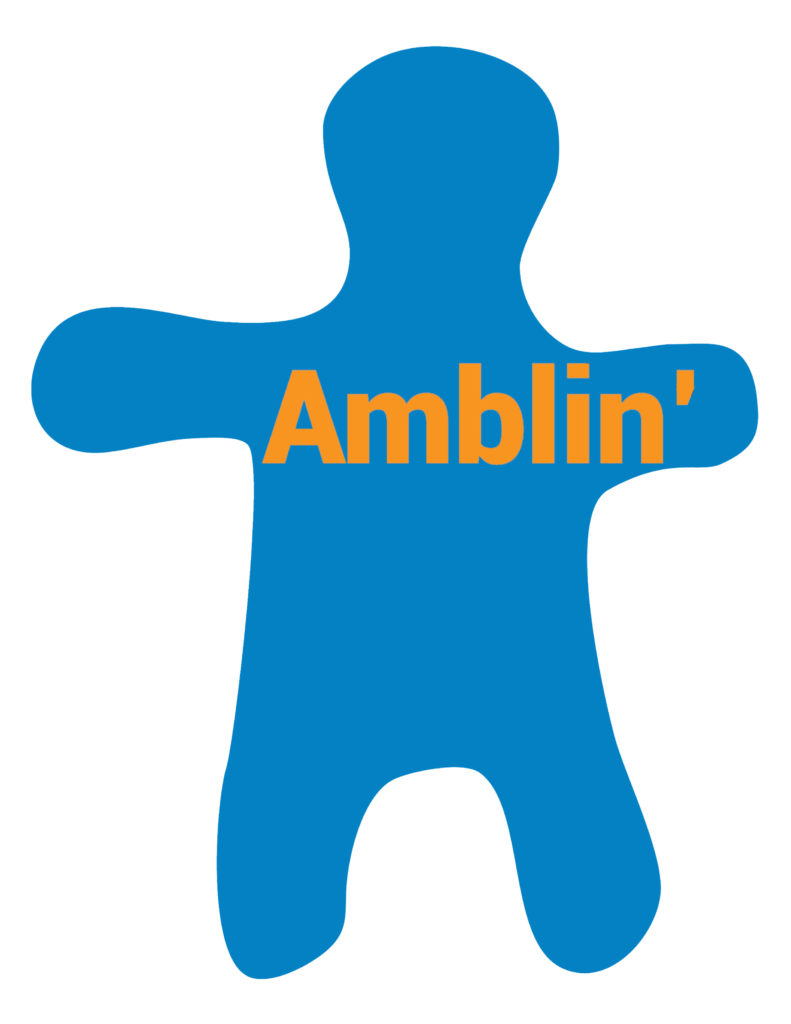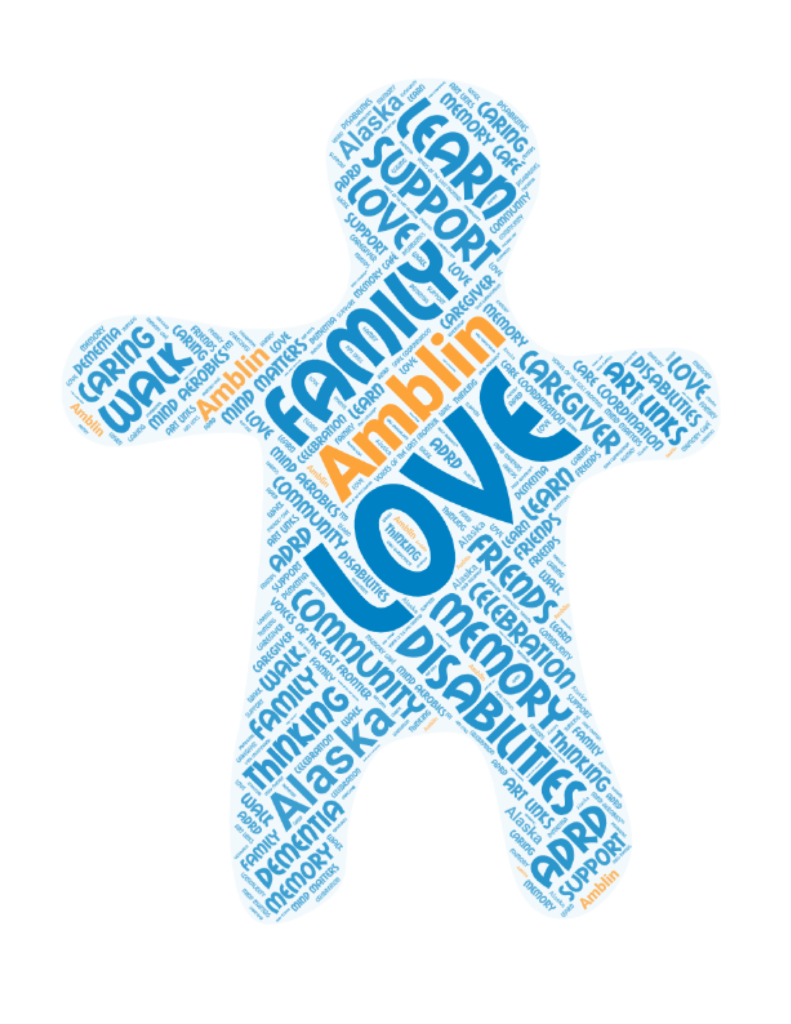Caregiver Checklist
Caring for someone with a progressive dementia brings about many new challenges and new things to learn.
The following ten steps can help caregivers provide the best possible care for those with a progressive dementia, while maintaining their own health and well-being.
☑ 1. Evaluation/Assessment

Medical, neurological and psychological assessments will assist in determining an accurate diagnosis of the person’s symptoms. Find a good doctor who understands dementia that you can trust. Be sure to tell them about all symptoms and changes in the individual.
A log or journal is helpful to track your observations and to communicate concerns with the doctor. Start with a consultation and memory screening with one of our Education Specialists.
See also: ![]() Diagnosis
Diagnosis
☑ 2. Educate yourself

Learn about progressive dementias through books, websites, workshops, and your local Alzheimer’s Resource of Alaska. We have ongoing free training for family caregivers.
☑ 3. Hold a family conference

Everyone who will be involved in caregiving and planning for the future should attend the conference. E‐mail or online formats are useful tools to keep everyone informed on a regular basis.
☑ 4. Assess your support system

As a caregiver, you will need a good support system. Join a caregiver support group. Accept help from friends. Talk about what is going on at home with someone you trust.
See also: ![]() Caregiver support groups around Alaska
Caregiver support groups around Alaska
☑ 5. Your health

Your health is just as important as your loved one’s health. Try to get enough rest. Exercise regularly. Eat well‐balanced meals. Find relief through an adult day center or respite care.
Let our Care Coordinators help to find what works for you. Be kind to yourself! Remember that it is OK to have fun.
☑ 6. Home Safety

Assess the need for wandering safety devices such as door and window alarms and a Safe Return bracelet. Remove dangerous items from within easy reach (hide car keys if your loved one can no longer drive, and lock up poisons, sharp knives, guns, power tools, etc).
You may need to move furniture and slippery rugs if your loved one develops a shuffling gait.
Remove distracting paintings or wall hangings if they start to confuse the individual. Be sure to have window coverings for when it gets dark.
See also: ![]() Mini-Grants
Mini-Grants
☑ 7. Legal & Financial

Is there a Durable Power of Attorney, and if necessary, a Guardian, or Conservator? Is there a Living Will? What kinds of insurance does the individual have? What does it cover? What are the individual’s sources of income – social security, pensions, etc.? Be sure you know about all bank accounts, safe deposit boxes, etc. the individual has in his/her name.
Check out eligibility of Medicare and Medicaid to see if they are an option.
How we can help
- Individual and family consultations.
- Caregiver support groups by telephone or video conference (a great way to learn about local resources)
- Community Resource Guides or setup a consultation for further community referrals.
- Brochures and handouts
- Lending library and recommended books/videos/websites
- Educational programs, seminars and state-wide webinars on relieving stress for caregivers, family consultations, financial and legal planning, and Savvy Caregiving and more.
- Printable Fact Sheets
- Care coordination services
- Assistance to find respite services, chore services, or consumer-directed personal care attendant services.
- Mini-grant funds for items that will help your loved one
Related Resources
Alzheimer’s and Dementia Info Pages
- 10 Steps in Planning for the Future
- 10 Warning Signs
- About Alzheimer’s Disease
- About ADRD
- Activities for Adults with Dementia
- Assisted Living Homes
- Caregiver Checklist
- Combativeness
- Communication Tips
- Diagnosis
- Dining & Dementia
- Driving and Dementia
- Introducing Services
- Treatment & Medications
- Medications & Dementia
- Normal Aging vs. Alzheimer’s
- Prevention
- Strategies for Wandering
- Stages and Symptoms
- Talking with Children about Alzheimer’s
- Traveling with Alzheimer’s
 Make a Payment
Make a Payment



